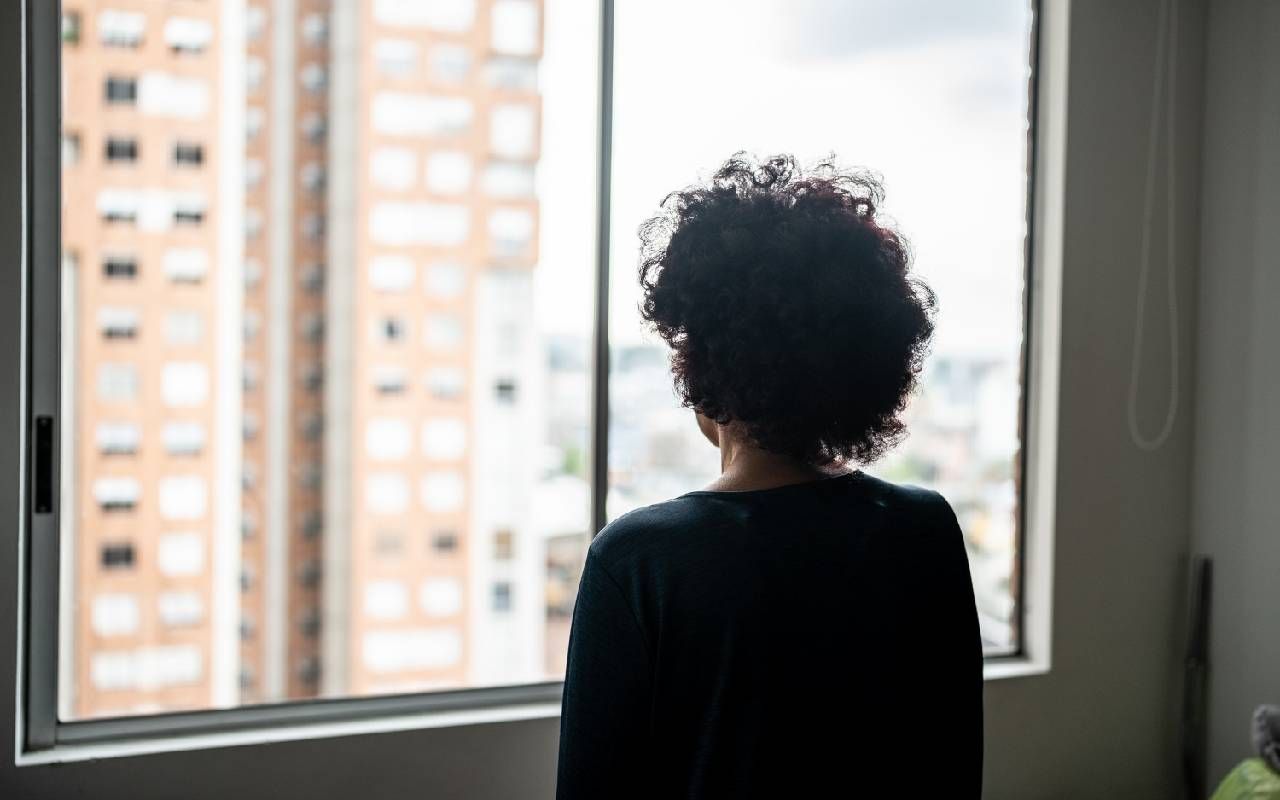When to Worry About Worrying
At different times, most people worry about things such as health, finances or family tension. Constant, persistent and unproductive worry may signify something more problematic.
In this post-Covid world, there is no shortage of things to worry about. Social norms, the common good and the balance of community have changed or been lost. The political world is fractured, money is tight, and many of us feel marginalized or disenfranchised as we move through an ordinary day. As a result, we are oftentimes upset, disturbed and alarmed.

According to epidemiological reports, as many as one in four Americans could be diagnosed with an anxiety disorder at any given time in our contemporary society; it is among the most commonly diagnosed of all mental illnesses.
Normal psychological arousal, i.e., a heightened sense of mental alertness, is healthy on occasion. In temporary doses, it is a proper response to uncertain circumstances or the perception of danger. At different times of our lives, most people worry about things such as health, finances or family tension. However, constant, persistent and unproductive worry may be a sign of something more problematic.
What Is Anxiety?
By definition, anxiety is the physical and emotional arousal reaction to perceived threats. It is different from the emotion of fear, which is known as the response to real or perceived danger or immediate harm, where anxiety is the anticipation of future threat. The two states overlap but differ, as fear is more often associated with the surges of arousal needed to muster sufficient energy necessary to fight, flee or to manifest escape behaviors, as we all were taught in introductory psychology classes.
When anxiety becomes severe ... it can be debilitating
Anxiety is associated with heightened muscle tension and hypervigilance in preparation for future danger and leads to increased number of cautious and avoidant behaviors.
Helpful anxiety alerts us and functions as a protective mechanism from danger. At its best, it serves to guide and focus our attention on real concerns or problems. When anxiety becomes severe, as one fellow described as "taking me to the ledge," it can be debilitating. Extreme worry, being afraid much of the time, and repeatedly feeling panicky are signs that anxiety has become dysfunctional. This condition may be diagnosed as a Generalized Anxiety Disorder (GAD).
Generalized Anxiety Disorder: When Worry Gets Out of Control
John is a married, middle-aged professional fellow, living in an urban community, working as a statistician for a large insurance company (his name and identifying information are changed to honor his privacy).
He began psychotherapy "…when I was compelled to do so by my wife. It was the middle of the pandemic. I was paralyzed and socially isolated. She said, 'This is not sustainable.' I was rooted in constant anxiety, so I sought help."
He continued, "Now, some years later, I still have a psychological hangover from the bad 'ole days of Covid. I'm working on it but find that I'm less outgoing and not as apt to seek the company of others. I am most comfortable when I'm by myself or with my nuclear family. Living in the world is a challenge."
Like John, an person with a generalized anxiety disorder lives in a state of extreme worry even when there is little or no reason nor objective evidence to feel as distressed. It involves a persistent feeling of anxiety or dread that interferes with daily living.
"I am most comfortable when I'm by myself or with my nuclear family. Living in the world is a challenge."
Individuals with generalized anxiety disorder cannot shake the feeling that something bad is going to happen and they will be unprepared to meet the demands of the situation. As Jeff, a mid-40s year old fellow who lives with GAD says, "I worry about everything, from missing an appointment, being late, making a mistake, having an accident…. I even worry about worrying too much."
General symptoms of an anxiety disorder include this sense of uncontrollable worry, excessive nervousness, sleep problems, poor concentration, GI distress, and extreme muscle tension not relieved by correct stretching or exercise.
How Does Anxiety Grow and Become Less Controlled?
Anxiety drives people to avoid the things, real or imagined, that scare them. Organically, when a frightening circumstance is avoided, an immediate sense of relief is realized. With a generalized anxiety disorder, because there is no actual danger or threat, the relief is short-lived and fleeting.
This loss of the continued feeling of relief moves the individual into a persistent sense of tension, causing a misreading of the environmental cues of danger, which loops into a cycle of avoidance and worsens the anxiety.
A generalized anxiety disorder is diagnosed by a mental health professional through assessment of sets of medical signs and symptoms correlated to and occurring with each other in patterns called syndromes. The symptoms include:
- Excessive worry about everyday things
- An inability to control the worry, often described as “nervousness”
- The understanding that “I’m worrying more than I should”
- Restlessness
- Distractibility and inability to concentrate on anything but worrying
- Heightened startle reflexes
- Difficulty falling asleep or staying asleep
- Feeling irritable or “on edge”
- Unexplained aches and pains
How Is Generalized Anxiety Disorder Treated?
Once a physical problem is assessed and ruled out, GAD is treated with psychotherapy, also known as "talk therapy," in combination with a carefully managed prescription of medication.
Psychotherapy for GAD typically takes the form of cognitive-behavioral therapy (CBT), supported by social science research for its effectiveness. CBT relies on an educational framework teaching different ways of thinking, behaving and reacting to anxiety provoking situations, ultimately leading a person to feel more in charge of the misperceived arousal. It is the gold standard for treatment of generalized anxiety.
"I have found that talking things through, hearing myself, and having someone listen carefully to me, helps me to sort out rational from irrational thoughts and fears."
During a course of CBT, the unhealthy thinking patterns creating anxiety are identified and challenged. CBT includes components of relaxation skill training and gradual exposure to anxiety-producing situations. Other forms of psychotherapy are promising. Acceptance and commitment therapy (ACT) uses strategies such as mindfulness and goal setting to reduce discomfort that help a person feel more in control of self in the environment.
Medication may be prescribed. Antidepressants, called serotonin-reuptake inhibitors (known by their acronym SSRI), or anti-anxiety medications, such as benzodiazepines, are typical considerations for treatment. SSRI medications take several weeks to reach effectiveness. They also have differential side effects and are to be monitored by a medical provider. Benzodiazepines have a sedative effect and rapidly decrease anxiety. Tolerance to them is easily built, so they are usually prescribed only for brief periods of time.
About his course of treatment, John says, "I was never at the point that I required medication. I have found that talking things through, hearing myself, and having someone listen carefully to me, helps me to sort out rational from irrational thoughts and fears. Now, though, I have a new concern that needs attention. I don't tend to repeat myself. So, as a consequence of spilling my guts in therapy, my wife feels like she has been replaced by my therapist as my confidant. Much of the time, she wonders how I am and if left to interpret rather than hear me tell her about my experience."
John speaks a relevant truth about anxiety. Honest conversation with trusted others is vital. Our heads think and our hearts heal; what connects them is our vocal cords. Talking out loud, particularly as John says, "when it makes no sense," engenders loving support and gives metaphorical voice to being more in charge of anxiety rather than suffering in silence.


